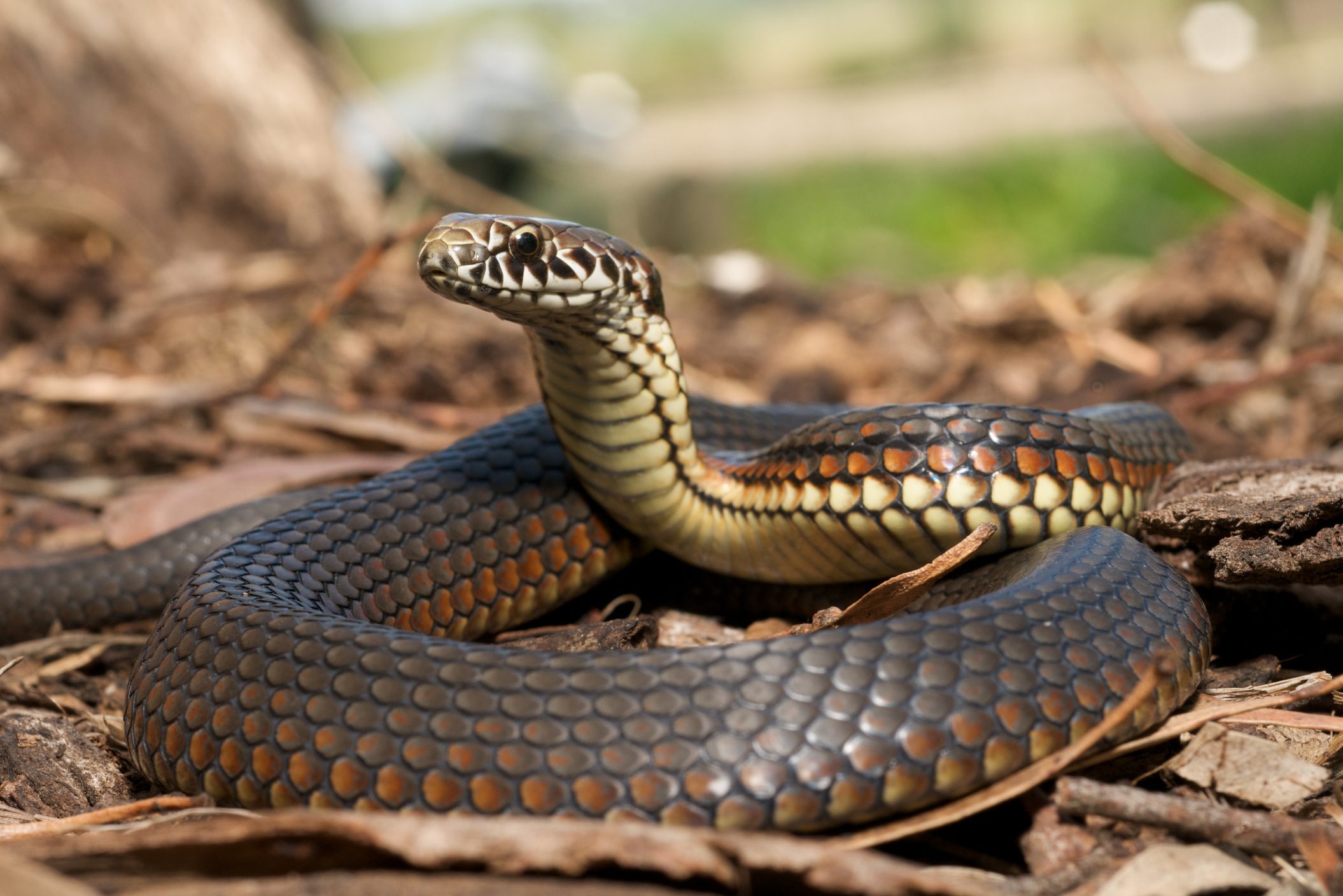Coming into contact with wildlife is something you can expect while camping. These three tips can help keep you safe and calm near wild snakes.

3 Safety Tips If You See a Snake Near Your Camp

As an avid camper, biologist and snake enthusiast, I’ve come across my fair share of snakes in the wild and perfected my ability to interact with them safely. Knowing what to do when you encounter a snake in your camp can be the difference between a scary situation and a positive wildlife encounter.
The best method to avoid a campsite snake encounter is prevention. However, I can tell you that no advertised campsite snake repellant products or hacks (such as pouring white vinegar around your campsite) work. But there are steps you can take to make your camp less appealing to snakes:
- Store food in rodent-proof containers.
- Choose camping locations away from dense brush, sandy areas or anyplace with large rocks.
- Clear out brush and rock piles from your campsite.
- Choose a campsite with high visibility.
Snakes have a bad reputation. But with the following three safety tips in mind, you’ll know exactly what to do if you find a snake near your camp.
On This Page
Leave the Snake Alone
Ignoring the snake is best advice with any in the wild. Most snakes in North America are not venomous, but those that are can do some serious damage.
Common venomous species, like rattlesnakes, are found in nearly every state. Their venom can cause the loss of a limb, or worse — your life. Consequently, always maintain a safe distance from any wild snake until you are 100 percent sure what species it is.
Almost all snake bites happen when you try to move or antagonize the snake. If a snake is in your campsite, it can be hard to leave it alone. However, if you do, it will usually leave your camp on its own once it feels safe enough to do so. And if you’ve taken the snake-prevention measures mentioned above, there won’t be much to attract a snake to your camp.
Identify the Snake
When you’re a safe distance from the snake, try to identify it. This will ensure you know exactly what you’re dealing with. If you can identify a snake as non-venomous, you’ll feel safer having it around your campsite.
For easy identification, buy a field guide specific to the region, state or the national park where you plan to camp. If you camp in western North America, this is the field guide I recommend. If you camp in eastern or central North America, this field guide is the one you want. These guides cost about $25 or less and can give you peace of mind.
While some mobile apps can identify snakes, there can be false negatives for venomous snakes. That can put you at risk. It’s better to consult field guide first, then rely on these apps for confirmation.
Contact a Park Ranger
If there’s a snake in your campground that won’t leave, contact the campground host or park rangers.
Sometimes you’ll come across a stubborn snake that made itself comfortable a little too close to your campsite. If you’ve already tried backing away and leaving the snake alone, it may be time to call in the professionals, especially if you’ve identified the snake as venomous.
Never attempt to move a venomous snake. And while non-venomous snakes pose significantly less risk, they can still have powerful bites. Their relocation should be left to those with experience. Public campgrounds and National Parks usually have trained individuals who will come to your campsite and safely remove snakes if they pose a safety risk. Contact information is usually provided at check-in.
How to Safely Move a Snake
If you are a snake enthusiast or have some experience handling snakes, you can try to move it yourself as a last resort if 30 minutes have passed and it still won’t leave your campsite. This should only be done if you are 100 percent confident the snake is harmless. If you’re unsure, leave it alone.
You can use a snake hook to move the snake safely and decrease the chance of a bite. But you must be extremely careful, especially with hooks that grab the snake, because improper use can injure the snake. Beginners shouldn’t even attempt it.




















